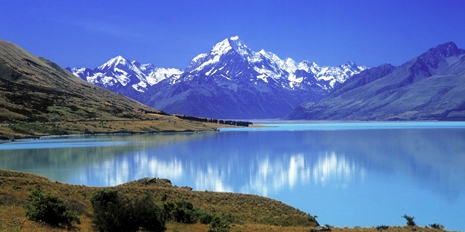
"The AANZ has become one of the top summits in the world" Bill Payne, US Angel Capital Association Hans Severiens Award Winner.
Earlier this month our MD Tracey Swinehart attended this year's Annual Angel Summit which is now one of the top Angel events in the world. Following are some of her insights from these two days.
New Zealand's capital ecosystem is still a way off from being fully developed with a long standing gap in supply of follow-on funding in the Venture Capital space. NZ start-up investments are therefore typically characterised by lots of small angel rounds with our angels participating in follow on rounds for longer than our offshore counterparts.
Lack of MNC (multi-national corporations) in NZ is another driver for our sub-optimal eco-system. MNC's play several roles, they contribute to % of GDP spend on R&D (NZ has one of the lowest in the OECD), a pathway for commercialisation of our technologies, and a training ground for key talent who can propagate their learnings by going off and starting their own tech companies. NZ's geographical isolation and narrow tech sector (dominated by primary industry and tourism) are key factors that have always made it difficult to attract MNC's.
NZ start-ups have a poor exit record and are too used to settling for failure as being OK. Most Angel groups are reporting deals that have been live for far too long (the walking dead) that are going nowhere or are un-exitable. We need more exits to ensure Angel funds continue to grow and money is recirculated for the start-up capital eco-system to work. Exacerbating this is Kiwi founders who often resist early exit opportunities
Brian Russel founder of Zephyr Technologies said through his journey he has learned to plan from Exit backward. A number of other speakers reiterated that planning for Exit needs to be part of the strategic agenda from day one and every Board should devote time on their agenda to this at every meeting right from the start.
Here are some statistics on New Zealand's Angel investment performance for 2015 presented by Debra Hall (Angel Association Executive Committee):
Sir Peter Gluckman's (Chief Science Advisor to the Government) talk was especially interesting. He stressed how important Angels are to the NZ innovation ecosystem and proposed that we need to lobby government stronger for support to better enable private R&D investment. These needs are otherwise lost amongst governments other public initiatives for supporting R&D.
Sir Peter proposed that NZ needs to spend at least 1% of its GDP on R&D to grow its tech sector. We are currently only at 0.5%. His thoughts on why NZ R&D spend is sub-optimal included:
Its therefore a lot about our culture, not just our structure. Sir Peter feels we have done a good job of ensuring science, innovation, and government are collaborating, however he likened it to having a power station built but only a trickle of water flowing into it (lack of technology innovations). We need to increase R&D spend to increase the flow to build an technology ecosystem and attract more investment in to NZ.
NZ has long since looked to Europe and other OECD countries to adopt technology growth frameworks but these have been proving unsuccessful when down-scaled in a NZ context. More recently NZ looked to examples of smaller countries (<10m population) in advanced economies that were achieving higher GDP % on R&D spend than NZ; this included Israel & Singapore. This led to a 50-strong mission to Israel earlier this year to learn from their world-leading innovation ecosystem, forge new business collaboration opportunities between New Zealand and Israel and develop ideas that could contribute to the unleashing of New Zealand's potential.
Sir Peter participated in this mission and below are some of the drivers that he suggested contributes to Israel's strong and growing tech sector.
Some other key takeaways from me from the Summit include:
The latter is a subject I particularly feel strongly about. For investors (particularly the founders), it's really important to acknowledge when the right time is to 'get off the bus'. I think as kiwis we tend to believe we need to conquer every challenge - that desire to prove that a kiwi company can achieve global domination. And yes it can be done, but it’s a road fraught with significant risk and many won't succeed.
There is absolutely no shame is achieving an early return for founders and early investors by taking an early exit opportunity if one presents itself. If all parties achieve an acceptable Nx on their investment, then stepping aside to allow a new team with significantly greater resources and global channels to take your baby to the next stage is in my opinion a great outcome. Sure you could stay on the bus longer and potentially achieve a greater return, but you are more likely to falter due to lack of capital, resources and experience along the way and be heavily diluted.
If you are planning on global domination from NZ then you must think and plan for this from day one, partner with teams and investors who have the right networks and experience to get you there. Getting smart with B2B partnerships with offshore businesses as an extension of your team can create similar leverage that our offshore competitors would achieve working with MNCs.
For anyone interested in learning more about becoming an Angel investor and/or giving time to support a start-up business as a Director or mentor, please talk to your local Angel group or visit http://www.angelassociation.co.nz/.
Comments
Post new comment